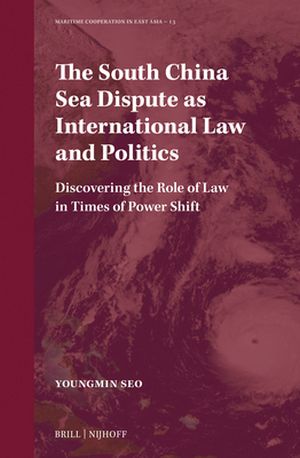
Digging deep into the fields of international law (IL) and international relations (IR) theory, this book offers a groundbreaking interdisciplinary exploration of legal solutions to the South China Sea dispute. Youngmin Seo navigates the complex terrain of the role of international law in times of power redistribution, presenting unique insights that redefine perspectives. Seamlessly blending IR and IL perspectives and providing a nuanced understanding of this global issue in the Indo-Pacific, this work is a beacon in turbulent waters.